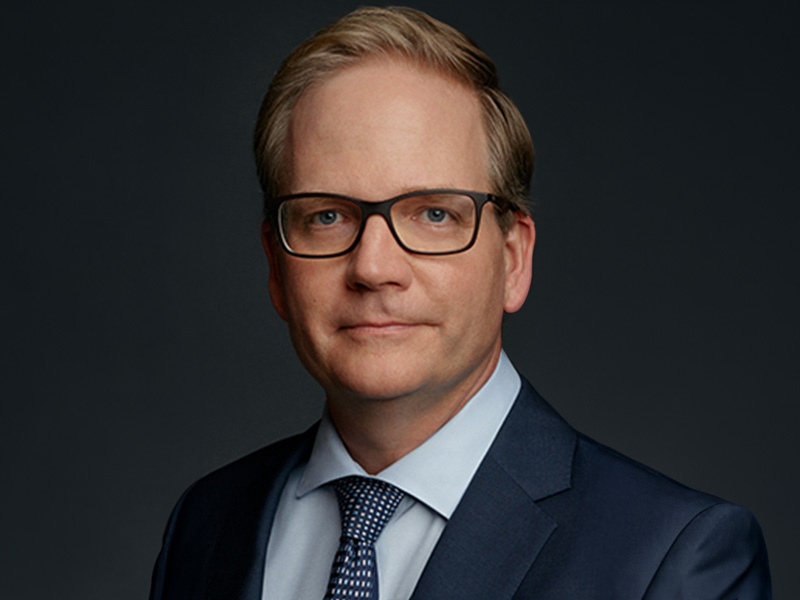
PAID CONTENT
Canadian retirees are redefining success in retirement and making resilient choices when faced with challenges, according to a recent study by Edward Jones Canada, in partnership with Age Wave. And this evolution of retirement is changing the scope of advice Canadians are seeking from financial advisors.
“Retirees, more than ever, want to be active, engaged and purposeful. Previous definitions of retirement were more centred around wealth and leisure. Today’s definition means thriving across all four pillars we first uncovered through our research in 2019: health, family, purpose, and finances,” says David Gunn, President of Edward Jones Canada. “Retirees today are seeing retirement as a whole new chapter in life.”
What comes through clearly from Edward Jones Canada’s third retirement study is that retirees and pre-retirees are clear-eyed about the challenges they face and determined to meet them head on. Most retirees (65%) acknowledge that finding work after age 50 can be difficult but agree it can benefit their quality of life — especially in the areas of keeping an active mind and enjoying a strong sense of purpose. Complementing that finding, most pre-retirees (76%) believe they’ll need to work longer than their parents’ generation to have a financially secure retirement.
Canadians seem to have received the message that saving for retirement is just one part of the puzzle. Nearly four in 10 retirees (38%) and more than half of pre-retirees (54%) agree that the top financial challenge is to figure out a budget for retirement. Perhaps even more significantly, an overwhelming majority of retirees (92%) agreed that “preparation, flexibility, and willingness to adapt are key to success in retirement.”
In fact, many Canadians have had to course-correct recently, with 70% of men and 78% of women saying they have experienced curveballs, cannonballs, or windfalls within the past 12 months. The most prevalent financial shock, affecting 60%, has been inflation and the rising cost of living.
“I was surprised by how quickly these trade-offs have been made by retirees. They did not hesitate,” Gunn says. There is also a slight difference along gender lines. Because of unique challenges in retirement for women, such as higher life expectancy, tendency to be a caregiver or lose a spouse later in life, retired women are especially willing to reduce everyday expenses (51% versus 43% of men) or adopt a more frugal lifestyle (42% versus 31% of men).
What does course correction look like across the four pillars? Gunn quotes the research saying that in health, it may include a healthy diet, regular exercise, and mental stimulation. The family pillar may involve spending more quality time with loved ones and setting needed boundaries. In purpose, exploring familiar options, trying new things, and expanding social circles may be key. And the finances pillar most certainly includes planning and seeking trusted, holistic guidance.
That’s the kind of guidance Edward Jones is training advisors to deliver. By keeping a finger on the pulse of the evolving definition of retirement, Gunn is confident his organization can equip advisors with the knowledge and resources they need to build tailored plans designed to help achieve what matters most to each client.
“Financial advisors are such an important part of the equation for providing comprehensive planning and advice to develop a unique plan, so Canadians can thrive across all four pillars in the new retirement,” says Gunn. “This is done through deep, personal, trusting relationships, understanding each client’s unique challenges, and partnering with them to take these challenges head on and help them make the trade-offs they need to make those resilient choices and have a successful retirement.”
Like retirees, financial advisors are evolving to succeed in a changing world. There was a time when offering financial advice meant recommending investments. The financial advisor’s role has broadened to also encompass cash management, insurance, retirement, tax and estate considerations. As Gunn sees it, the next step is to become the go-to resource for pre-retirees and retirees looking for support in addressing the four pillars.
“Financial advisors, whose work is primarily wrapped around investments recommendations and portfolio rebalancing, are missing out on these important conversations that build deep personal relationships with clients,” says Gunn. “Who, if not a trusted financial advisor, can clients have these conversations with? Financial advisors are in a perfect position to help clients prepare for all aspects of retirement, and that’s why we invest our time here and build our training for our branch teams to really help clients navigate this intricate process.”
